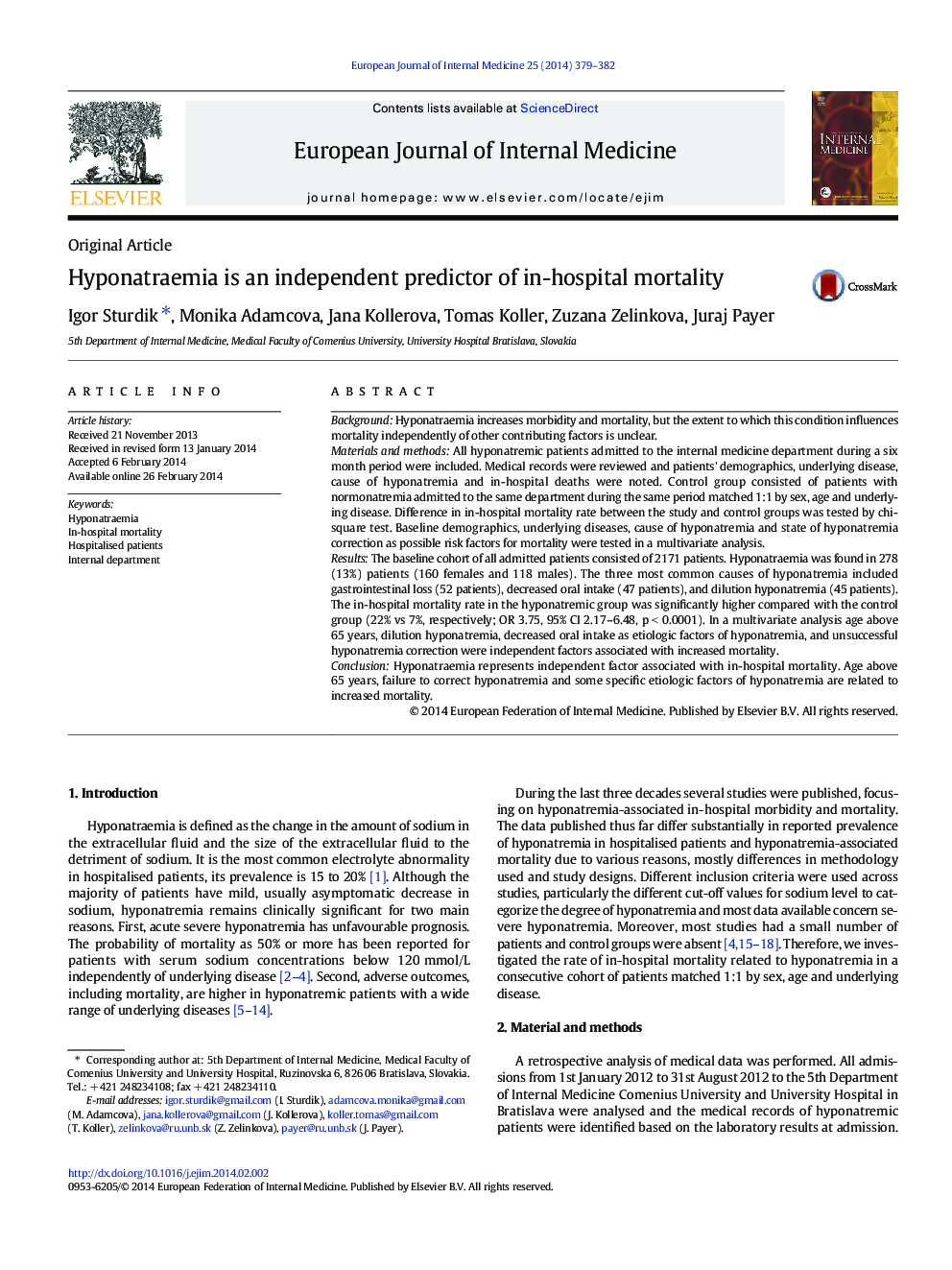| Article ID | Journal | Published Year | Pages | File Type |
|---|---|---|---|---|
| 3466791 | European Journal of Internal Medicine | 2014 | 4 Pages |
•Hyponatraemia represents general and independent risk factor of hospital mortality.•We analyse some risk factors of hyponatraemia-associated mortality.•In-hospital mortality in hyponatraemic group was 3 times higher than in control one.•Failure to correct even mild hyponatraemia increases the risk of mortality.
BackgroundHyponatraemia increases morbidity and mortality, but the extent to which this condition influences mortality independently of other contributing factors is unclear.Materials and methodsAll hyponatremic patients admitted to the internal medicine department during a six month period were included. Medical records were reviewed and patients' demographics, underlying disease, cause of hyponatremia and in-hospital deaths were noted. Control group consisted of patients with normonatremia admitted to the same department during the same period matched 1:1 by sex, age and underlying disease. Difference in in-hospital mortality rate between the study and control groups was tested by chi-square test. Baseline demographics, underlying diseases, cause of hyponatremia and state of hyponatremia correction as possible risk factors for mortality were tested in a multivariate analysis.ResultsThe baseline cohort of all admitted patients consisted of 2171 patients. Hyponatraemia was found in 278 (13%) patients (160 females and 118 males). The three most common causes of hyponatremia included gastrointestinal loss (52 patients), decreased oral intake (47 patients), and dilution hyponatremia (45 patients). The in-hospital mortality rate in the hyponatremic group was significantly higher compared with the control group (22% vs 7%, respectively; OR 3.75, 95% CI 2.17–6.48, p < 0.0001). In a multivariate analysis age above 65 years, dilution hyponatremia, decreased oral intake as etiologic factors of hyponatremia, and unsuccessful hyponatremia correction were independent factors associated with increased mortality.ConclusionHyponatraemia represents independent factor associated with in-hospital mortality. Age above 65 years, failure to correct hyponatremia and some specific etiologic factors of hyponatremia are related to increased mortality.
